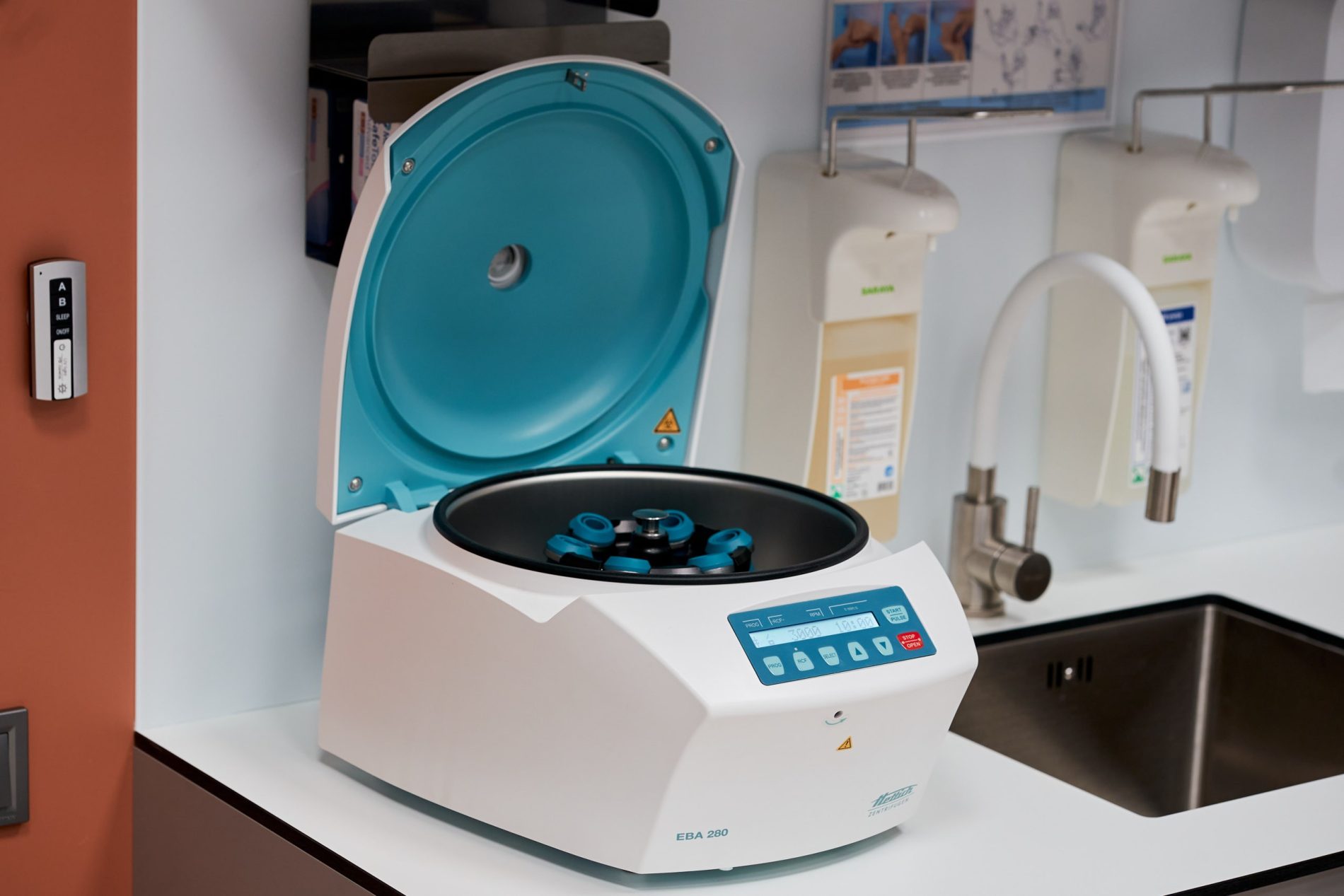
Laboratory analyzes in Kiev
Laboratory diagnostics - a wide range of analyzes and reliability of resultsModern medicine cannot be imagined without tests. Laboratory diagnostics provides up to 70% with information about the state of human health. High-quality laboratory analysis is the key to an accurate diagnosis and timely treatment!
Diavita Institute offers a wide range of modern diagnostic methods that allow obtaining reliable results for the correct choice of treatment tactics. With the use of advanced equipment and the involvement of highly qualified specialists, we ensure the accuracy and efficiency of each study.
- Clinical blood analysis: It includes counting the number of blood elements, such as erythrocytes, leukocytes and platelets, as well as determining the level of hemoglobin and other indicators.
- Biochemical analysis of blood: Evaluates the level of various substances in the blood, such as glucose, proteins, lipids, electrolytes, etc., to determine the state of functioning of organs and systems.
- Coagulogram: Examination of the blood coagulation system to detect disorders that can lead to blood clotting or, conversely, an increased risk of bleeding.
- Immunological tests: They include measuring the level of various immunological indicators, such as antibodies or cytokines, to detect immune disorders or infections.
- Hormonal analysis: Evaluates the level of various hormones in the blood, such as thyroid hormones, growth hormones, sex hormones, etc., to detect hormonal disorders.
- Genetic analyses: Examination of the genetic material in the blood to detect genetic abnormalities, hereditary diseases or genetic risks.
- Serological tests: Determining the presence of antibodies to certain infectious agents, such as viruses, bacteria, or parasites, for the diagnosis of infectious diseases or vaccination.
- Tumor markers: Examination of the levels of various biomarkers in the blood, which may indicate the presence of tumors or cancers. This type of analysis is used for early diagnosis of cancer, determining the effectiveness of treatment and tracking the dynamics of the disease.
- Polymerase chain reaction (PCR diagnostics): It is used to detect the DNA or RNA of certain pathogens, which can be useful for the diagnosis and differentiation of infectious diseases.
- Cytology: The study of cells obtained from tissues or body fluids to detect signs of pathological changes, such as cancer cells or pathological processes.
- Bacteriology: Analysis of biological fluids or materials for the presence of bacteria that can cause infectious diseases and determination of their sensitivity to antibiotics.
- Histology: Studying the structure of tissues in order to diagnose pathological processes, such as cancer or inflammatory diseases.
At the Diavita Institute, it is possible to perform a variety of tests, including blood, urine, biological fluids and other. At the same time, comprehensive health examination programs are available to you, consisting of individually selected most important screening tests, as well as additional diagnostic procedures and expert consultations - for confidence in your health and prevention. More information here – Package offers.
We adhere to the highest quality and safety standards to ensure reliable results for every patient. Results in all the major laboratory diagnostic tests available for you at the Diavita Institute, while you get all the comfort and convenience of planning, no waiting in queues and a good mood throughout the day.
Lab tests quality guaranteed
Results of a non-involved laboratory and strict control at the pre-analytical stage
A comprehensive approach to your comfort and convenience
Embracing comfort when taking tests and strict confidentiality
Confidence in further actions
Consultations of leading specialists based upon the results of tests
The analysis time depends on the specific type of test and can vary from few hours up to several days.
Some tests may require special preparation, such as following a diet, fasting or carrying out hygiene procedures. Others may not require prior arrangements. In women, the results of some tests may depend on the phase of the menstrual cycle.
Information on how to properly prepare for manipulations can be obtained from the administrator, or your doctor will provide information during the appointment.
It should be noted that the specificity and sensitivity of any tumor markers are not absolute, and the results of such analyzes should be evaluated in a set of diagnostic measures prescribed by the doctor.
PSA (prostate antigen): It is used to detect prostate cancer and monitor its development.
CA-125: The main tumor marker for ovarian cancer, which can also be elevated in other gynecological diseases.
CEA (carcinoembryonic antigen): It is used to detect colon and rectal cancer and to track recurrences after treatment.
CA 19-9: It is used to diagnose pancreatic cancer and may also be elevated in gallbladder cancer and esophageal cancer.
AFP (alpha-fetoprotein): It is used to detect liver cancer and may also be elevated in pregnant women with fetal defects.
CA 15-3 and CA 27-29: They are used to monitor breast cancer and detect recurrences after treatment.
Yes, once the analysis is complete, the results can be made available online and sent to you by email, subject to your consent.
Yes, our specialists are ready to provide advice and explanations on the results obtained, as well as recommendations on further actions.




